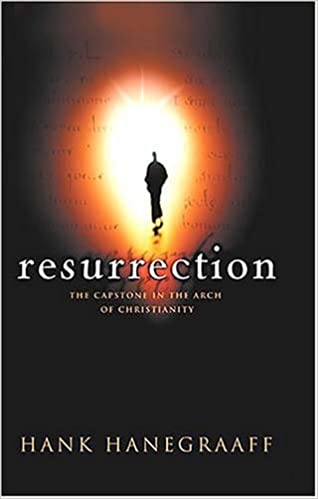
Quotes by Hank Hanegraaff
The principle "that every effect must have a cause is a self-evident truth, not only for those who have been trained in logic, but for thinking people everywhere." Cause and effect, "which is universally accepted and followed in every field of science, relates every phenomenon as an effect to a cause. No effect is ever quantitatively ‘great’ nor qualitatively ‘superior’ to its cause. An effect can be lower than its cause but never higher." In stark contrast, the competing theory of evolution attempts to make effects such as organized complexity, life, and personality greater than their causes-disorder, nonlife, and impersonal forces. As has been well said, "design requires a designer, and that is precisely what is lacking in non-theistic [materialistic] evolution."
Philosophical naturalism-the world-view undergirding evolutionism-can provide only three explanations for the existence of the universe in which we live. The first is that the universe is merely an illusion. This notion carries little weight in an age of scientific enlightenment. As has been well said, "even a full-blown solipsist looks both ways before crossing the street." The second is that the universe sprang from nothing. As previously pointed out, this proposition flies in the face of the law of cause and effect. And the third is that the universe eternally existed. This hypothesis is devastated by the law of entropy, which predicts that a universe that has eternally existed would have died an "eternity ago" from heat loss. There is, however, one other possibility. It is found in the first chapter of the first book of the Bible: "In the beginning God created the heavens and the earth" (Genesis 1:1). In an age of enlightenment and empirical science, nothing could be more certain, clear or correct.
False teachers invite people to come to the Master’s table because of what’s on it, not because they love the Master.
The resurrection is not merely important to the historic Christian faith; without it, there would be no Christianity. It is the singular doctrine that elevates Christianity above all other world religions. Through the resurrection, Christ demonstrated that He does not stand in a line of peers with Abraham, Buddha, or Confucius. He is utterly unique. He has the power not only to lay down His life, but to take it up again.
What happened as a result of the resurrection is unprecedented in human history. In the span of a few hundred years, a small band of seemingly insignificant believers succeeded in turning an entire empire upside down. As has been well said, "They faced the tyrant’s brandished steel, the lion’s gory mane, and the fires of a thousand deaths," because they were utterly convinced that they, like their Master, would one day rise from the grave in glorified, resurrected bodies.
As with these compelling words from the lips of Christ, the concept of choice demands that we believe in hell. Without hell, there is no choice. And without choice, heaven would not be heaven; heaven would be hell. The righteous would inherit a counterfeit heaven, and the unrighteous would be incarcerated in heaven against their wills, which would be a torture worse than hell. Imagine spending a life-time voluntarily distanced from God only to find yourself involuntarily dragged into His presence for all eternity.
We can rest assured that our temporary earthly passions are but a pale shadow of the pleasure we will experience in heaven when symbol is supplanted by substance.
Tragically, many Christians spend precious little time thinking about their eternal home. Instead, they work themselves into oblivion building temporary homes and hideaways.
Why do people punish their bodies to run a grueling marathon race? Most runners name two reasons: the sense of personal reward they get and the physical benefits of the exercise. The same two rewards apply in the spiritual realm: great prizes await those who persevere, and the very process of living by faith builds strong character.
If Christ is truly God, His claim to be the only way has to be taken seriously. If on the other hand, He is merely one more person in a pantheon of pretenders, His proclamations can easily be pushed aside. That is precisely why the resurrection is axiomatic to Christianity. Through the resurrection, Christ demonstrated that He does not stand in a line of peers with Buddha, Baha’u’llah, Krishna, or any founder of a world religion. They died and are still dead, but Christ is risen. Ultimately, resurrection and reincarnation are mutually exclusive because the former is a historical fact, while the latter is but a Hindu fantasy.
I don’t know about you, but the more I think about the new heaven and the new earth, the more excited I get! It is incredible to think that one day soon we will not only experience the resurrection of our carcasses, but the renewal of the cosmos and the return of the Creator. We will literally have heaven on earth. Eden lost will become Eden restored and a whole lot more! Not only will we experience God’s fellowship as Adam did, but we will see our Savior face to face. God incarnate will live in our midst. And we will never come to the end of exploring the infinite, inexhaustible I AM or the grandeur and glory of his incomparable creation.
Imagine [in heaven] being able to love another human being without even a tinge of selfishness. Imagine appreciating, no, reveling in the exalted capacities and stations that God bestows on another without so much as a modicum of jealousy.



